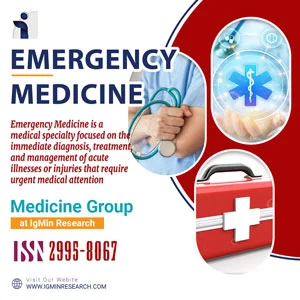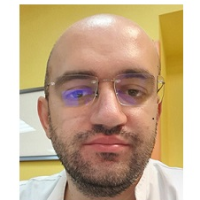Open Access Policy refers to a set of principles and guidelines aimed at providing unrestricted access to scholarly research and literature. It promotes the free availability and unrestricted use of research outputs, enabling researchers, students, and the general public to access, read, download, and distribute scholarly articles without financial or legal barriers. In this response, I will provide you with an overview of the history and latest resolutions related to Open Access Policy.
About
Emergency medicine is a specialized field focused on the rapid assessment, diagnosis, and treatment of acute medical conditions that require immediate attention. Emergency medicine professionals work tirelessly to address life-threatening situations, trauma, and urgent medical needs in the emergency department. This dynamic field plays a crucial role in saving lives, promoting patient stability, and providing critical interventions during critical moments.
The study of emergency medicine encompasses various areas, including trauma care, resuscitation, critical care, and disaster management. Emergency medical practitioners are trained to handle a wide range of conditions, from heart attacks and strokes to injuries sustained in accidents. Their expertise in rapid decision-making and efficient care delivery ensures that patients receive the best chance of recovery in times of crisis.
Editors
Medicine Group (2)
Open Access Policy refers to a set of principles and guidelines aimed at providing unrestricted access to scholarly research and literature. It promotes the free availability and unrestricted use of research outputs, enabling researchers, students, and the general public to access, read, download, and distribute scholarly articles without financial or legal barriers. In this response, I will provide you with an overview of the history and latest resolutions related to Open Access Policy.

Why publish with us?
Global Visibility – Indexed in major databases
Fast Peer Review – Decision within 14–21 days
Open Access – Maximize readership and citation
Multidisciplinary Scope – Biology, Medicine and Engineering
Editorial Board Excellence – Global experts involved
University Library Indexing – Via OCLC
Permanent Archiving – CrossRef DOI
APC – Affordable APCs with discounts
Citation – High Citation Potential
Which articles are now trending?
Research Articles
- Adaptation of the Physical Literacy Scale for Adults into Turkish and Examination of its Psychometric Properties
- Physical Activity and Lifestyle of Female Students of the Faculty of Health Sciences University of Applied Sciences in Tarnów (Poland)
- Federated Learning- Hope and Scope
- Effect of Additive Manufacturing Parameters on 316L Mechanical and Corrosion Behavior
- Investigation of Lateral Vibrations in Turbine-generator Unit 5 of the Inga 2 Hydroelectric Power Plant
- A New Modification of Classification of Traumatic Patients with Pelvic Fracture
Advertisement













